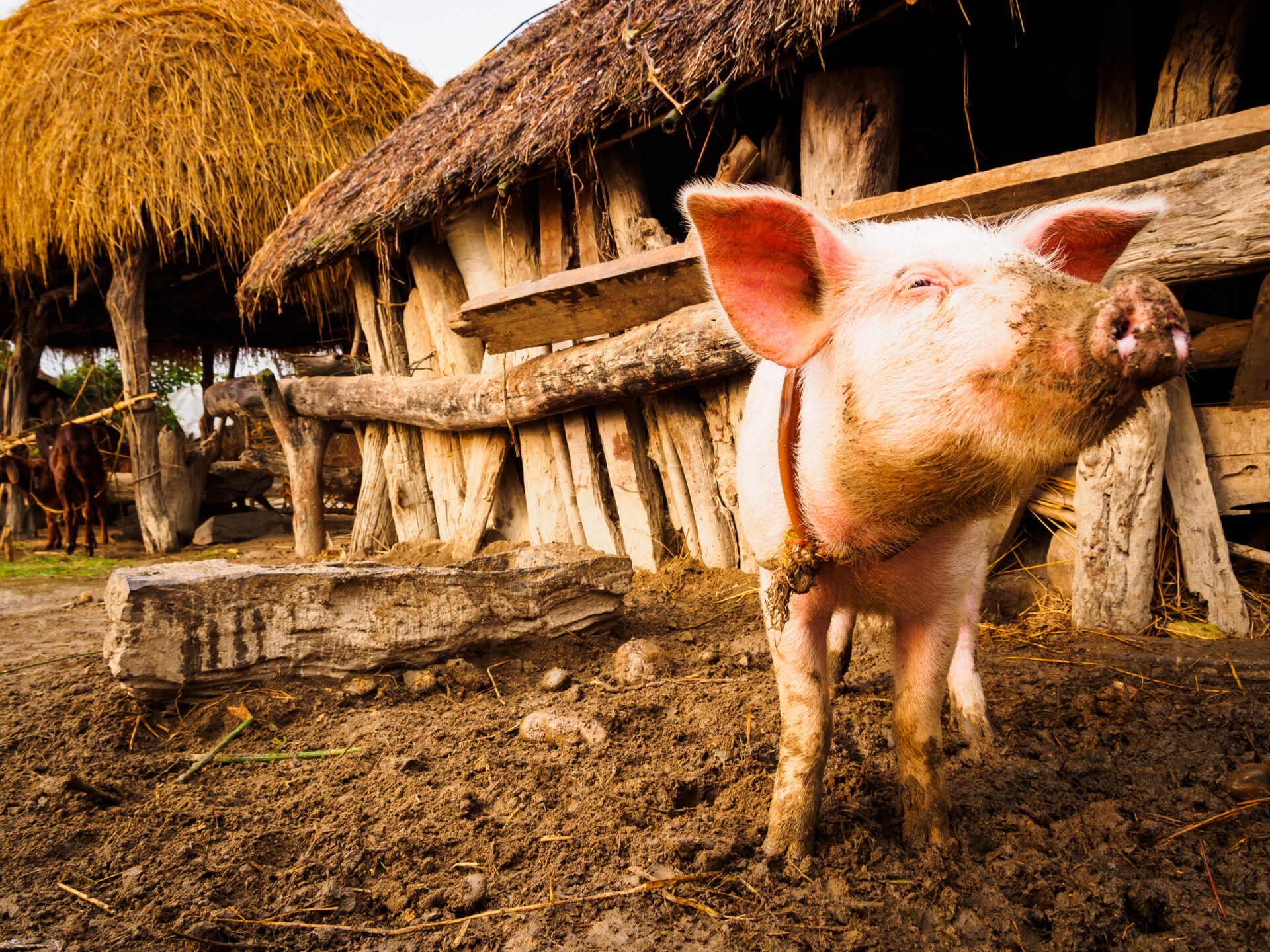OIE and FAO kickstart global initiative to stop spread of deadly pig disease
As African swine fever spreads globally, governments, industry and specialists come together to take action.

26 October, 2020, Paris | Rome – As African swine fever (ASF) marches swiftly across countries affecting food security and livelihoods of some of the world’s most vulnerable populations, the World Organisation for Animal Health (OIE) and the Food and Agriculture Organization of the United Nations (FAO) are calling on all nations and partners to join forces to keep this deadly pig disease at bay under a new initiative.
The Global Control of ASF Initiative, recently launched under the GF-TADs umbrella, supports actors at every level to coordinate and strengthen control measures to minimise the impact of this complex and challenging disease.
Bringing together governments, industry and specialists, OIE and FAO will present the Initiative for the first time on a global stage as part of a Call to Action event (26-30 October).
The spread of ASF shows no signs of slowing down. The contagious disease has led to the loss of over 7 million pigs in Asia alone, since sweeping into this region. More than 50 countries in Africa, Asia and Europe are currently affected and the Americas are trying to prevent incursion into their territory.
“Today, no country is safe from African swine fever,” said OIE Director General Monique Eloit. “The number of countries across the world reporting outbreaks to the OIE continues to grow. This corresponds to the biggest animal disease outbreak of our generation.” She stressed the need for continued investment in veterinary services, and the effective implementation of international standards, particularly those related to biosecurity and surveillance, to bring ASF under global control.
“Our goal is to prevent the spread – and ultimately eradicate – this disease, leveraging the latest science, best practices and international standards,” said FAO Director General QU Dongyu in his video message to the participants. “If not controlled, this disease will jeopardize progress towards achieving the Sustainable Development Goals,” he continued – calling on all stakeholders to take action to stop the spread of ASF, promote animal health and welfare, and safeguard the livelihoods of farmers.
The disease causes up to 100 percent fatality in wild and domestic pigs and there is no effective vaccine. Although not infectious to humans, pig production is critical for many economies, and to the food security and livelihoods of millions of people. The fatal disease continues to extend its reach, causing further damage in the socioeconomic fallout from COVID-19.
As part of a week-long online event, government representatives, veterinarians, and specialists from around the world, will share knowledge and experiences on tools, approaches and state of the art research. Coordinated actions as part of the Initiative will build resilience utilising practical guidance, appropriate to specific needs and contexts.
Call for action
ASF is a complex disease which survives in pork products and persists in the environment for long periods, making control and eradication very difficult. Cases in wild boar are also a concern not only for their potential implication in disease transmission, but also for biodiversity and wildlife management.
Global control of ASF cannot be achieved by one sector or one country alone. Through a coordinated effort, all actors in the pig production chain joining the Global Control of ASF GF-TADs Initiative, can help to:
- protect the livelihoods of vulnerable communities
- safeguard animal health and welfare
- contribute to stabilising the pig production sector as well as meat and feed prices in regional and international trade and thus contribute to food security
- and ensure people access to nutrition to ensure healthy lives and promote wellbeing.
As part of the Global Control of ASF GF-TADs Initiative, OIE and FAO call on Members and partners to:
- Carry out national risk analysis and re-enforce risk management: including contingency planning, prevention, early detection, rapid response, and compensation policies to support industry recovery.
- Maintain a high level of awareness on ASF risk mitigation among farmers, veterinarians, butchers, hunters, input suppliers and other value chain stakeholders.
- Foster and support the implementation of good biosecurity practices, which are key to prevent further spread of ASF.
- Re-enforce and maintain border inspection for prevention of disease spread between countries through illegal practices such as the smuggling of pork, pork products and live animals during travel and migration.
- Finalise research, development and validation of potential vaccines against ASF as well as related vaccination strategy.
- Support the improvement of laboratory diagnostics and rapid screening tools for ASF.
- Develop a holistic approach to ASF control in wildlife – taking all pig-types into account.
- Foster solidarity and cooperation between countries with varying levels of experience, resources, and capacity for ASF prevention and control.
- Foster Public-Private-Partnership for investment in ASF risk mitigation and management.
Read more about what OIE and FAO, under the GF-TADs framework are doing to help countries curb the spread of ASF.
More information:
- OIE ASF web portal
- OIE last reports on ASF
- Global Control of African Swine Fever: a GF-TADs Initiative
- Event webpage: African swine fever: An unprecedented global threat – A challenge to livelihoods, food security and biodiversity. Call for action
- OIE and FAO publication: African swine fever in wild boar Ecology and Biosecurity
- FAO manual for veterinarians: African swine fever: detection and diagnosis
- OIE ‘ASF kills pigs’ awareness campaign for farmers, public, hunters and transport authorities in English, French, Spanish, Russian, Chinese and a range of Asian languages
Contact: [email protected]
